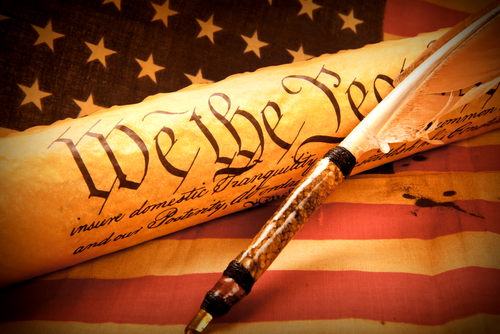Freedom of Speech
What is freedom of speech?
Freedom of speech is the freedom to speak freely without censorship or limitation. Freedom of expression is a close cousin, though it sometimes includes any act of seeking, receiving and imparting information or ideas, regardless of the medium used. In practice, the right to freedom of speech is not absolute in any country and the right is commonly subject to limitations, such as on "hate speech." Even so, the legal protections of the First Amendment in the United States are some of the broadest of any industrialized nation, and remain a critical, and occasionally controversial, component of American civil liberties.
Around the world, the right to free speech is preserved in the United Nations Universal Declaration of Human Rights and is granted formal recognition by the laws of most nations. Despite the declaration, free speech varies wildly around the world, though overall it is improving.
Freedom of speech is protected by the First Amendment to the U.S. Constitution, written in 1791, as well as many state constitutions and federal laws. The First Amendment reads: Congress shall make no law respecting an establishment of religion, or prohibiting the free exercise thereof; or abridging the freedom of speech, or of the press; or the right of the people peaceably to assemble, and to petition the Government for a redress of grievances.
Freedom of speech came out of the European Enlightenment. England’s Bill of Rights in 1689 granted “freedom of speech in Parliament” and the Declaration of the Rights of Man and of the Citizen, adopted during the French Revolution in 1789, specifically affirmed freedom of speech as an inalienable right. The colonies originally had different views on the protection of free speech. During English colonialism in America, there were fewer prosecutions for seditious libel than England, but other controls over dissident speech existed.
Over the years, challenges to the right to free speech have bubbled up, and limitations have been posed. The exceptions to these general protections include obscenity, child pornography, sedition, speech that incites imminent lawless action, and commercial speech such as advertising. Within these limited areas, other limitations on free speech balance rights to free speech and other rights, such as copyright and patent rights for authors and inventors over their works and discoveries, protection from imminent or potential violence against particular persons, or slander -- the use of untruths to harm others. Distinctions are often made between speech and other acts which may have symbolic significance.
Related:
Get the world’s most fascinating discoveries delivered straight to your inbox.
 Live Science Plus
Live Science Plus






